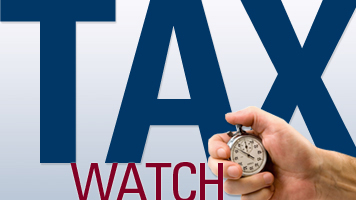
The U.S. Tax Court has concluded that partners of a limited liability company (LLC) were liable for the taxes on their distributive shares of the capital gains income they received after the company was liquidated.
Tax Court Finds LLC Members Liable for Income Taxes Post-Liquidation
The U.S. Tax Court has concluded that individuals remained partners of a limited liability company (LLC), treated as a partnership for federal tax purposes, after the LLC’s purported liquidation. Therefore, they were taxable on their distributive shares of the LLC’s capital gains income received in the two years after the restructuring.
CCH Take Away: A partner that retires remains a partner for tax purposes until his or her interest has been completely liquidated. A retiring partner’s interest in a partnership is completely liquidated when the entire partnership interest is terminated through one or more distributions to the partner from the partnership. The final distribution terminates the partner’s status. Thus, any financial connection between the partnership and a retiring partner is sufficient to maintain the partner’s status as a current partner.
Background
In the case, individuals A and B were members of an LLC. In 2002, the LLC restructured and sold a customer list to an outside party, determining that the income was long-term capital gains. Under the restructuring, the LLC agreed to pay 45 percent of the net proceeds of the sale to A and B.
Under the restructuring agreement, individual A remained a member (or partner) of the LLC, while individual B’s interest was converted to an "economic interest." The economic interest granted B the right to receive a liquidating share of the LLC’s income, gains, losses, deductions and credits, as collateral for the LLC’s obligation to B.
The purchaser of the customer list made payments to the LLC in 2003 and 2004. Accordingly, the LLC reported long-term capital gains on its 2003 and 2004 returns. The LLC did not distribute any cash or property to B in those years. The LLC eventually filed for bankruptcy protection.
Individual A reported capital gain income for 2003. Individual B did not report any gains for 2003. Neither A nor B reported any capital gains for 2004.
Court’s analysis
Individual B claimed he was no longer a partner after 2002 and was not taxable on the capital gain income. The Tax Court disagreed. The court found that individual B remained a partner until he received a final distribution from the partnership. Since the partnership did not make liquidating distributions to B, he remained a partner in 2003 and 2004, and he had to take into account his distributive share of the partnership’s capital gain income (and any other partnership items) from those years.
Comment: Individual A did not dispute that she remained a partner during 2003 and 2004 and should have reported her 45 percent share of the capital gains received by the partnership in those years.
Penalties
The Tax Court imposed penalties and additions to tax on individual A: the late-filing addition to tax under Code Sec. 6651(a)(1), for 2000, and the accuracy-related penalty under Code Sec. 6662(a) for 2003 and 2004. Individual A failed to file her return on time for 2000, and substantially understated her taxes for 2003 and 2004.
Comment: The penalties and additions to tax apparently did not apply to individual B.
The court found that the IRS met its burden of production for both items. Individual A failed to establish reasonable cause for the violations, rather than willful neglect. Individual A did not dispute either the penalty or the additions to tax, and the record did not demonstrate reasonable cause or good faith.
©2012 CCH. All Rights Reserved.
